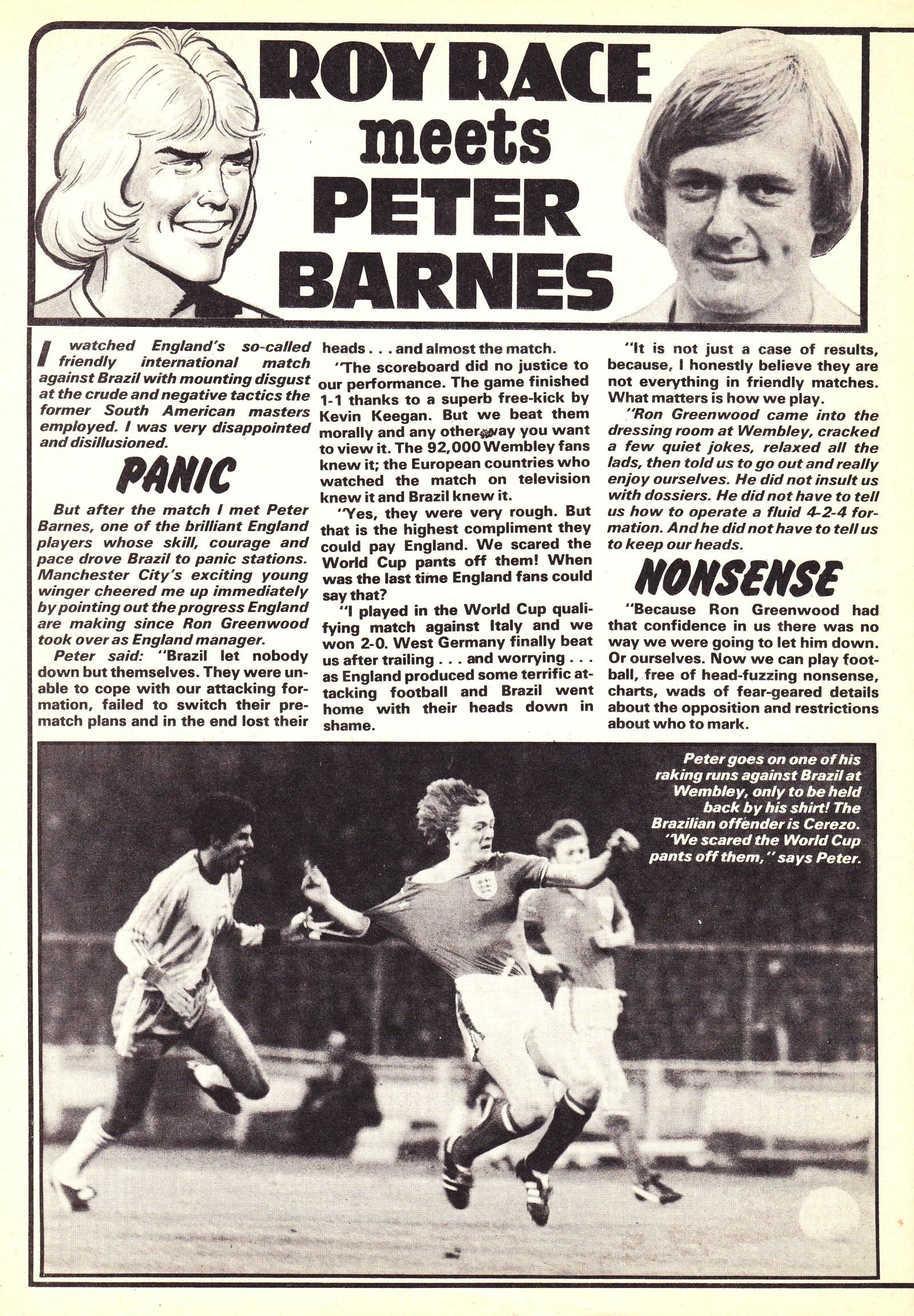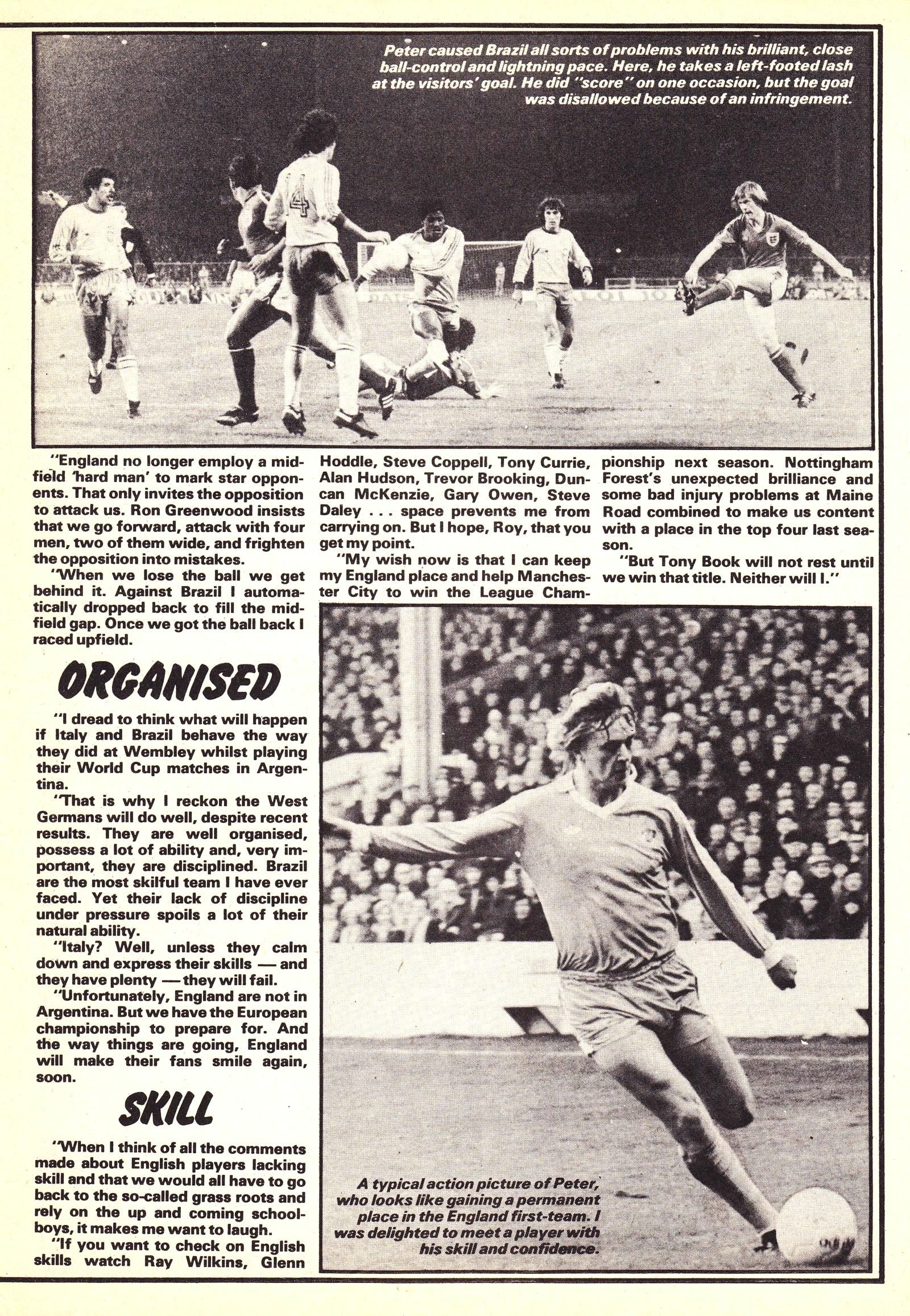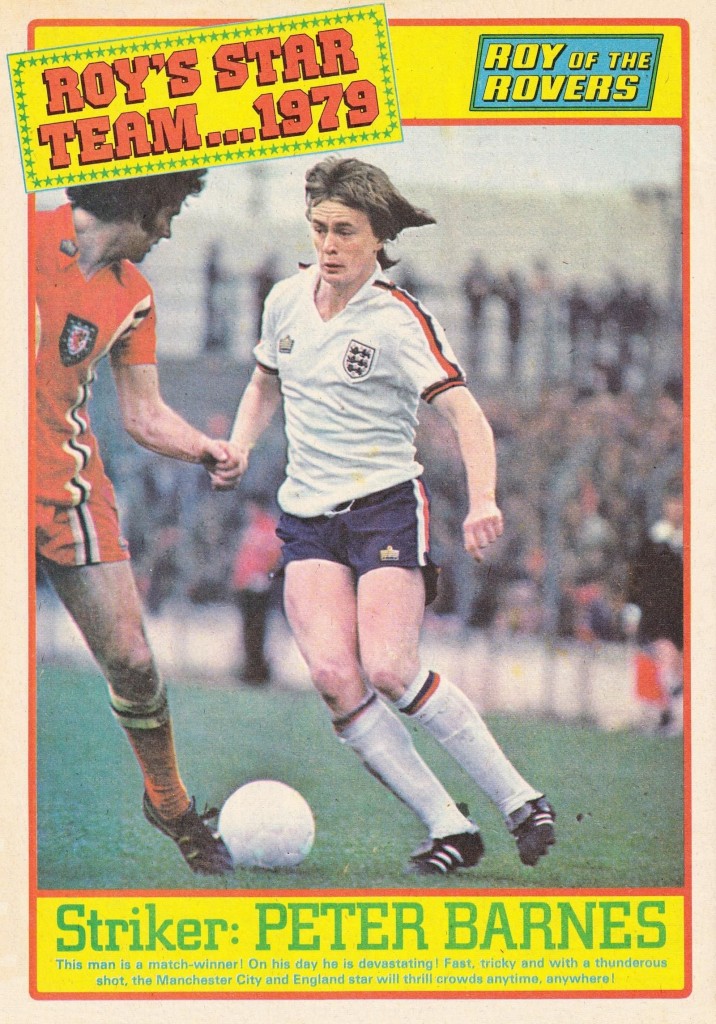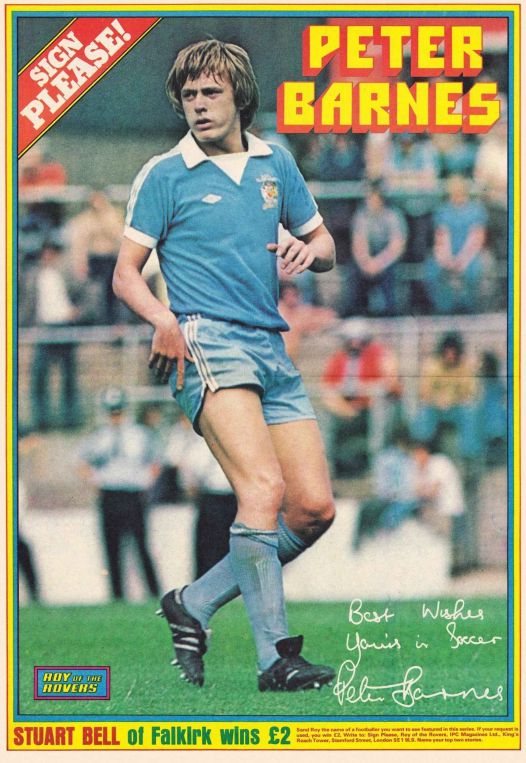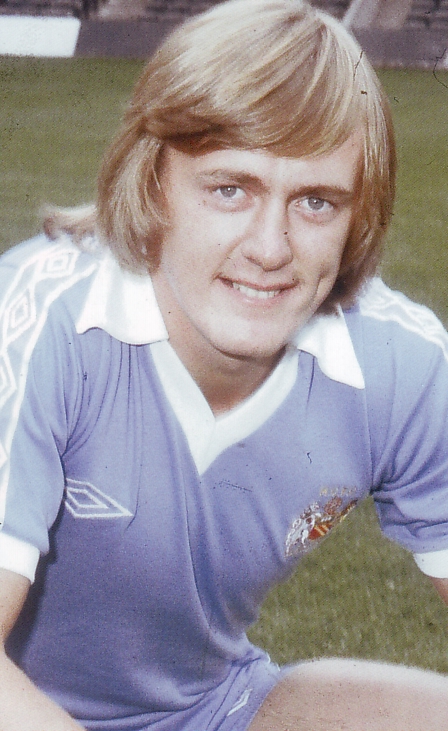
Peter was born in Manchester on 10th June 1957, son of City legend Ken Barnes.
The popular left winger made his debut as a sub in the Manchester Derby at Old Trafford on 9th October 1974.
in 1975/76 season Peter won his only major honour with City, scoring The Blues’ first goal in a 2-1 victory over Newcastle in The League Cup Final and then just a day later he picked up the PFA Young Player of the Year award.
A year later he won his first of 22 full England caps against Italy on 16th November 1977
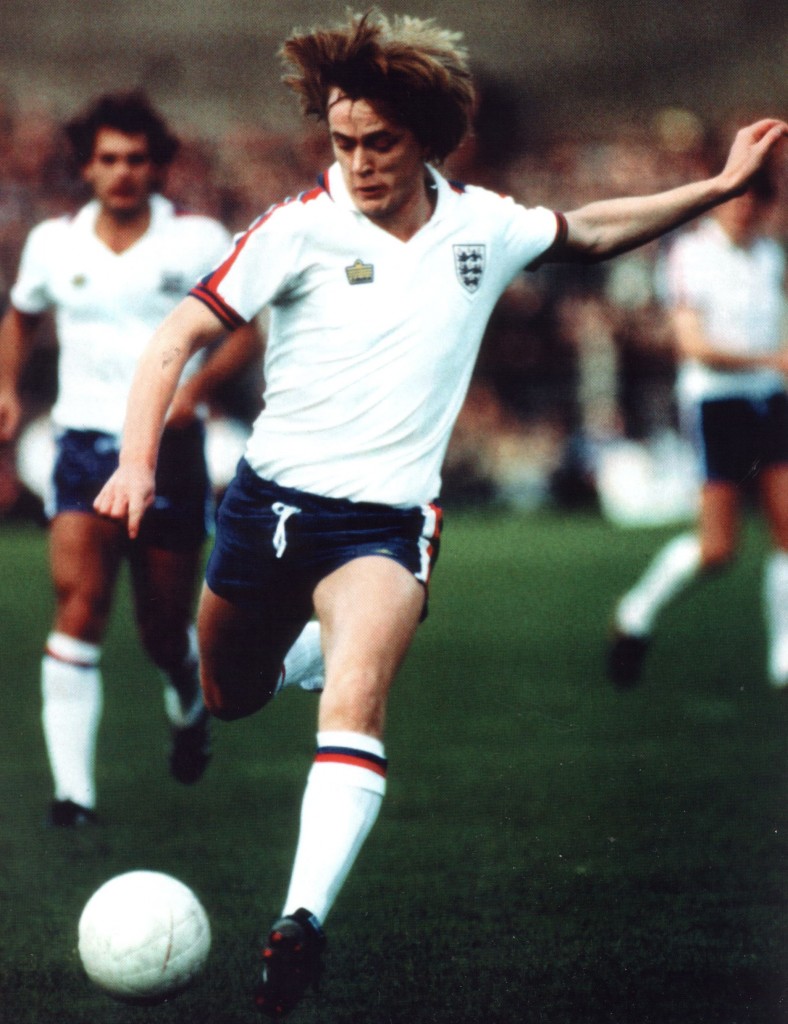
He was forced out of Maine Road in July 1979, with many other established players in Malcolm Allison’s catastrophic second spell as City manager, moving to West Brom for £750,000.
He stayed at the Hawthorns for two years before moving to Leeds in 1981, he then moved on quickly to Real Betis in 1982 then back to Leeds in 1983, and then to Coventry, again for just one season.
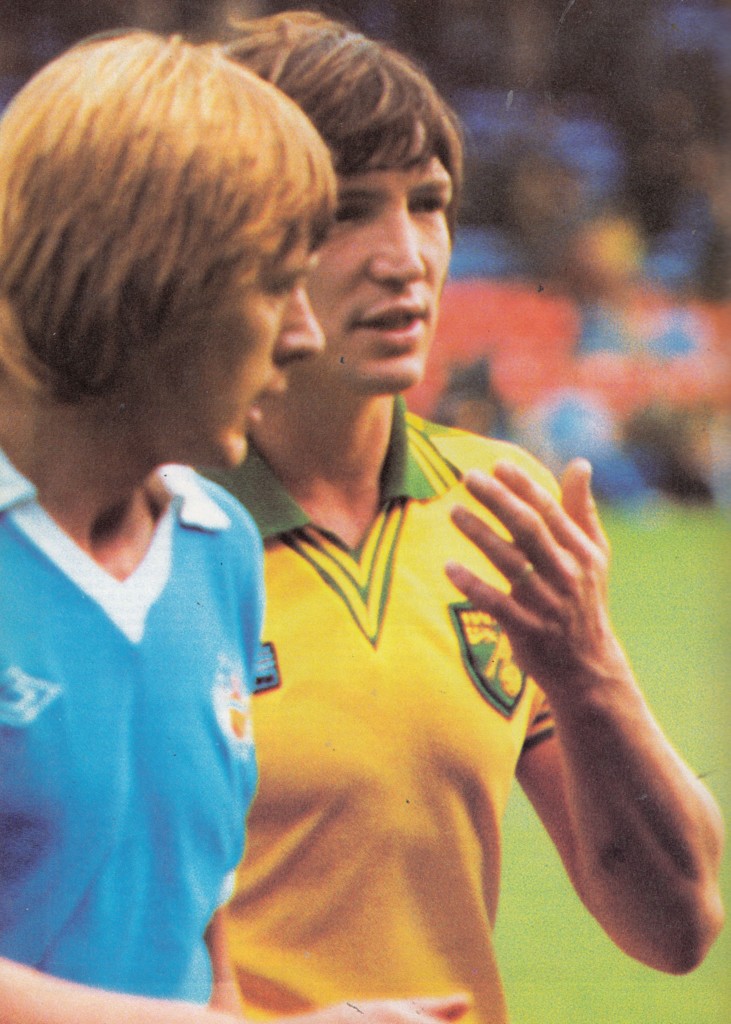 In 1985 he actually signed for Manchester United and stayed at Old Trafford for two years, making just 20 appearances. Then with City facing a relegation battle, he joined The Blues again, in what was to be possibly the wrong decision, City were relegated and Peter made just 8 appearances and was loaned out to Bolton, Port Vale and Wimbledon, before he moved away on a permanent move to Hull in 1988, coming to the end of his career he moved on to a plethra of clubs, from Hull he went to SCFarense, then Bolton, Sunderland, Footscray JUST, Drogheda United, Tampa Bay Rowdies, Stafford Rangers, Northwich Victoria, Mossley and finally Cliftonville.
In 1985 he actually signed for Manchester United and stayed at Old Trafford for two years, making just 20 appearances. Then with City facing a relegation battle, he joined The Blues again, in what was to be possibly the wrong decision, City were relegated and Peter made just 8 appearances and was loaned out to Bolton, Port Vale and Wimbledon, before he moved away on a permanent move to Hull in 1988, coming to the end of his career he moved on to a plethra of clubs, from Hull he went to SCFarense, then Bolton, Sunderland, Footscray JUST, Drogheda United, Tampa Bay Rowdies, Stafford Rangers, Northwich Victoria, Mossley and finally Cliftonville.
In 1998 he had two short attempts at management at Gibraltar and Runcorn.
As of June 2019, Peter can be seen as a City player representative on matchdays, as well as still running Football schools and working as a pundit in the media.
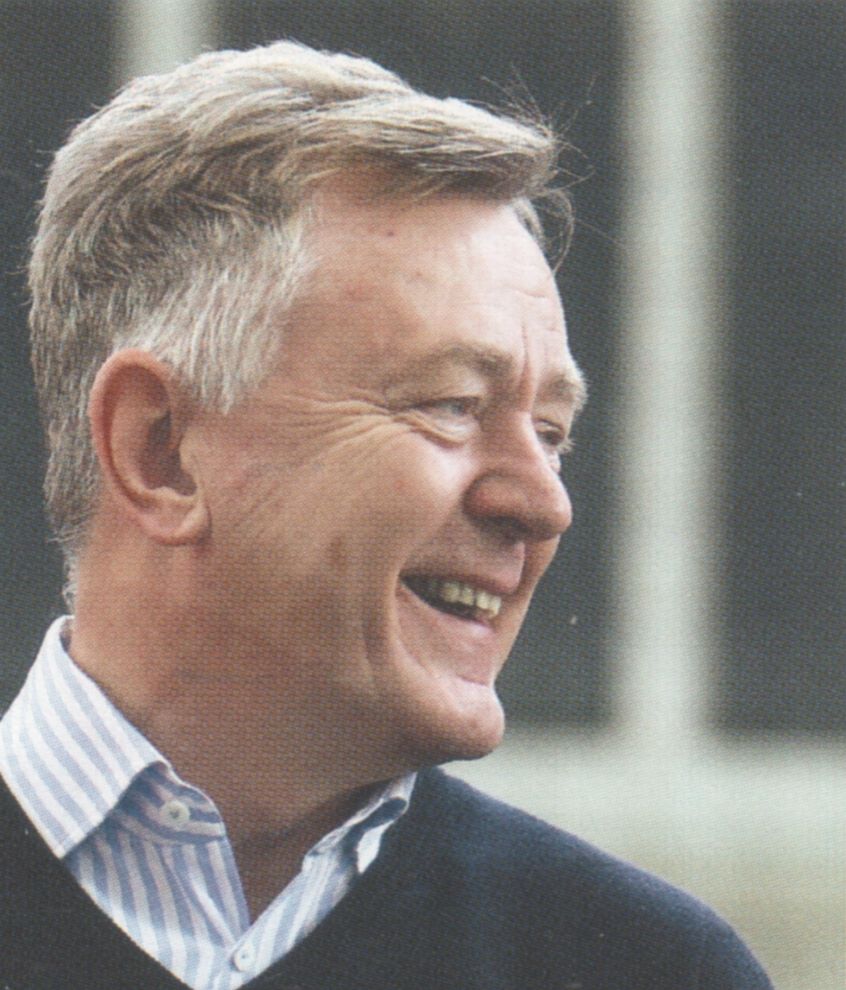
INTERVIEW WITH PETER BARNES BY GARY JAMES IN 2009 PUBLISHED IN THE CITY PROGRAMME
Let’s start with your current activities. What keeps you busy today?
There’s an awful lot going on at the moment. There’s just not enough hours in the day, but I suppose the most interesting from a footballing point of view is my involvement with ‘Kik Off’ a subsidiary of Recomac.
For the last four years I’ve worked for John Conway installing artificial pitches and promoting football in the community. The artificial surfaces we create are really the third generation of artificial pitches and they are of real quality – the best there is. We’ve installed several at schools and colleges – the one off Denmark Road (near Maine Road) is ours and we are quite proud of the way we’ve opened up football again for the local community.
Football’s there to be enjoyed and everyone should have access to good quality facilities.
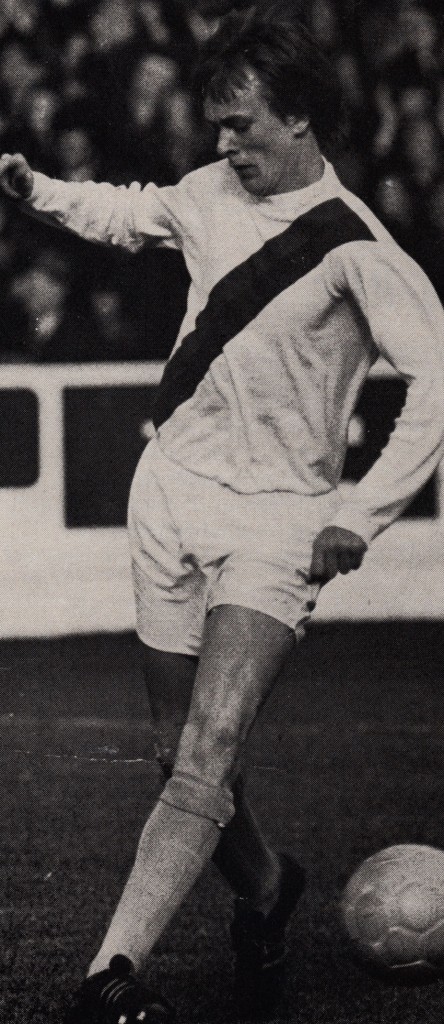
Going back to your early life, was there any pressure on you to become a footballer because your father Ken was such a major star in the 50s & 60s?
There was no real pressure on me from the family. Dad never pushed me to play. In fact as a boy I’d play in the garden with my brothers Keith and Michael, and Dad would come out shouting at us for messing up his garden!
He’s always been proud of his garden and I remember one day we were kicking the ball around when he came charging after us. We’d knocked the heads of his roses and he took his garden fork and burst the ball with it!
After that we played in the street, but then we got in trouble with the neighbours because we always managed to smash a window or two with a wayward shot.
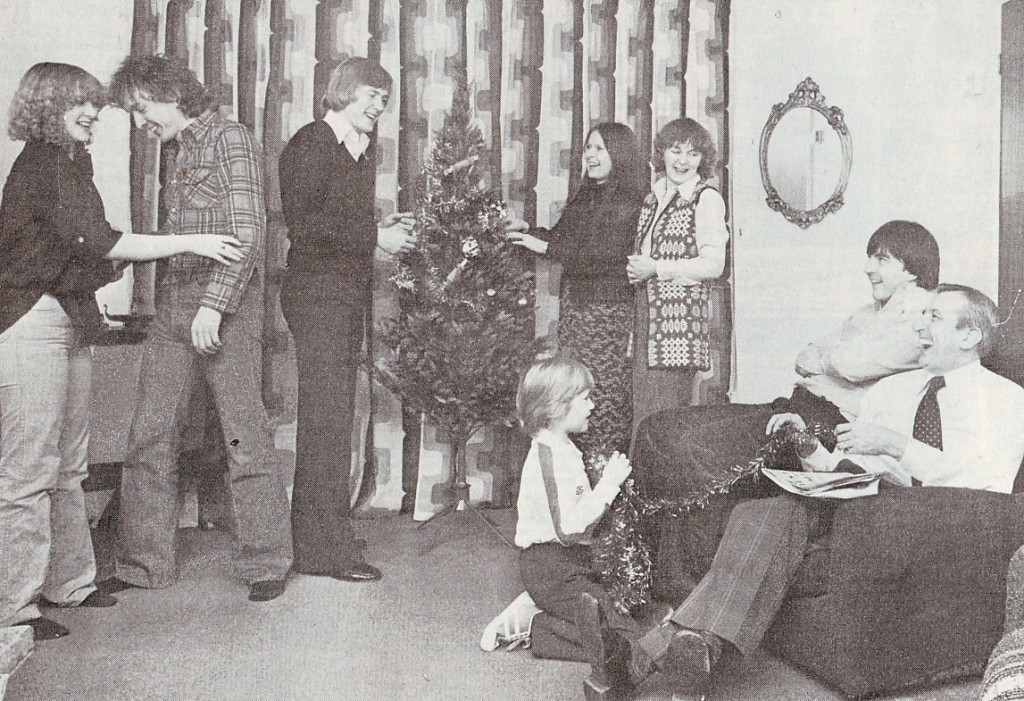
Presumably the fact Ken Barnes was your father opened a few doors?
I suppose it made people notice me, but dad was fantastic because he always kept my feet on the ground. I remember playing schoolboy football and scoring a hat-trick. Afterwards Dad told me I did okay but didn’t go overboard with praise. You often see young players drown in praise and it can set you off with false impressions. Dad encouraged my brothers and I and offered advice, but he didn’t allow us to get carried away.
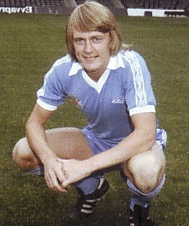
Was it inevitable you would join City once you were old enough?
No. Not at all. If I was to join any club it had to be on merit and so I went for various trials. Johnny Williamson took me to Leeds a few times and they did want to sign me. I eventually turned them down when Johnny Hart encouraged City to have a proper look at me. City did show interest and I went on to sign, but inevitably there were some who believed I was only at Maine Road because of Dad. I worked hard to prove them wrong.
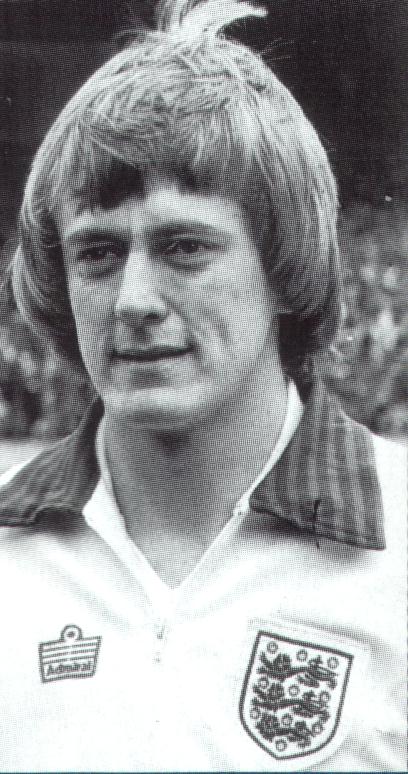
What was it like as a young player at City in the early 70s?
Fantastic! There were some great guys there. Steve Fleet was youth team coach and, together with Harry Godwin, a wonderful man to have around. Johnny Hart was great – very knowledgeable but also a tough task master at times. Then there was Dave Ewing. Another tough coach. He would take you into the dressing room, turn the lights out and boot balls at you in the dark! You had to dodge them but had no idea where they would hit!
It may seem odd, but all of that fostered a great spirit and I loved City.
You made your debut as substitute against United in a League Cup tie in October 1974. What was that like?
United won 1-0 through a penalty – Jeff Clarke was adjudged to have handled – and Arthur Albiston also made his debut. I came on for Glyn Pardoe and I suppose my main recollection is of the noise generated by the crowd. There were 55,000 there and City fans had the whole of the Old Trafford Scoreboard End. It was a great sight, but coming on for the first time was a little frightening. I remember shouting for the ball and no one hearing me because of the intense atmosphere. I soon realised there was no point shouting.
During the 1975-6 season you established yourself in the side and then you scored the opening goal in the League Cup final. What do you remember of that time?
It was a great week prior to the final but City being City we didn’t follow the usual cup final routine. We spent the week at a health farm – unheard of at the time – and I shared a chalet in the grounds with Joe Royle. Every time he came in, the chalet would shake! There was virtually no food at the health farm – we all lost weight – and then we’d be training on the lawn and doctors in white coats would be cutting across, or watching us making notes! It was surreal.
It was Colin Bell’s birthday while we were down there and they brought out a large cake, but I don’t think they allowed us to eat it!
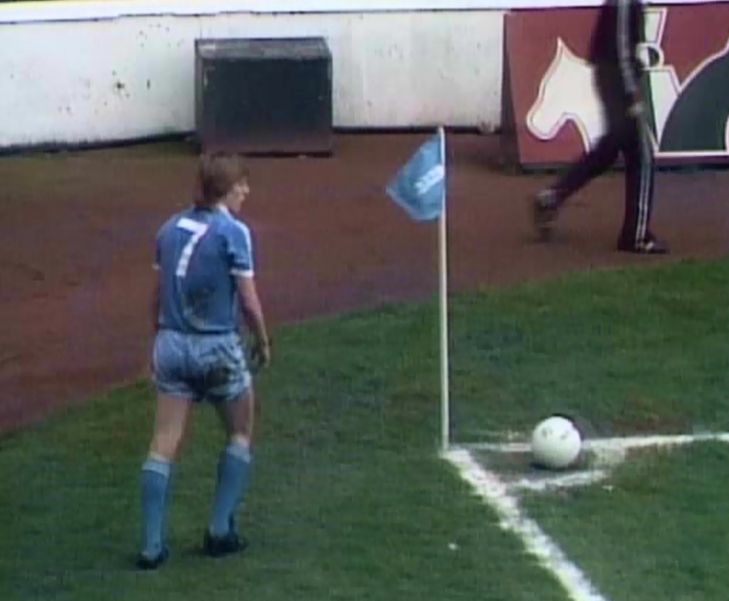
What are your key memories from the final?
Another strange memory really is of City’s coach Ian McFarlane. He was always wearing tartan and was a real larger than life character. A mad Scotsman really. We were out on the pitch before kick-off and he had the ball and was taking shots at Corrigan. You could tell he loved being on the pitch at Wembley and wasn’t going to miss his chance to have a kickabout on the turf. We tried to get the ball off him but couldn’t. He was like the teacher played by Brian Glover in the film Kes! This was his day and we weren’t going to stop him. It was really funny.
My goal came after about 11 minutes. We were kicking towards the City fans and I remember Doyle knocking it through. I didn’t have time to think I just sent it home and ran towards the fans celebrating. I’d already settled and it felt fantastic.
All week, while we were at the health farm, the media had been full of stories of how Malcolm Macdonald would tear us apart. He’d scored five goals against Cyprus for England and this was going to be his finest moment, but in the end he didn’t get a look-in. We had a great banquet afterwards and Rod Stewart came along to celebrate with us.
You were voted PFA Young Player of the Year by your peers that season as well. From memory I believe this was a great but also painful moment in your career.
I can laugh about this now but you’re right it was painful. At the awards I was sat with a couple of the other City players but we also shared a table with a few United men – I couldn’t understand that at the time! The guys on our table were telling me I had a good chance of winning and I remember Tueart saying that I had to thank so and so – the list kept growing. When it was announced that I’d won I got up, still with the lads telling me to say this and say that, and as I collected the award from Dickie Davies I was worrying about what to say. I started my speech: “My Lords, Ladies, and Gentlemen…” I looked around the room and saw there were no ladies. Great start! Then I said: “I’d like to ah… ah… ah…” I froze!
Funnily enough the Liverpool players were just in front of me and I remember Kevin Keegan urging me to just say anything. I eventually thanked someone – the players I think – and then I went back to my seat. It was the most frightening experience of my life at the time!
The awards used to be televised on the night and I remember watching at home and my mother felt so sorry for me.
I got more fan mail that week than at any other time, but it was all from mothers. My own mum thought the volume had gone on her telly! When we played United some time later the Stretford End teased me mercilessly with
Barnsey, Barnsey, give us a speech… I’d like to ah… ah… ~
A year later you made your England debut. Presumably you enjoyed this period of your career?
I loved football in the Seventies and Eighties and playing for England was terrific. One of my caps is on display here in the museum and I am so pleased that Ron Greenwood believed in me. He loved playing with wingers and encouraged me. We won the Home International tournament and we only lost one of my first 13 England appearances and that defeat was against the great West German side.
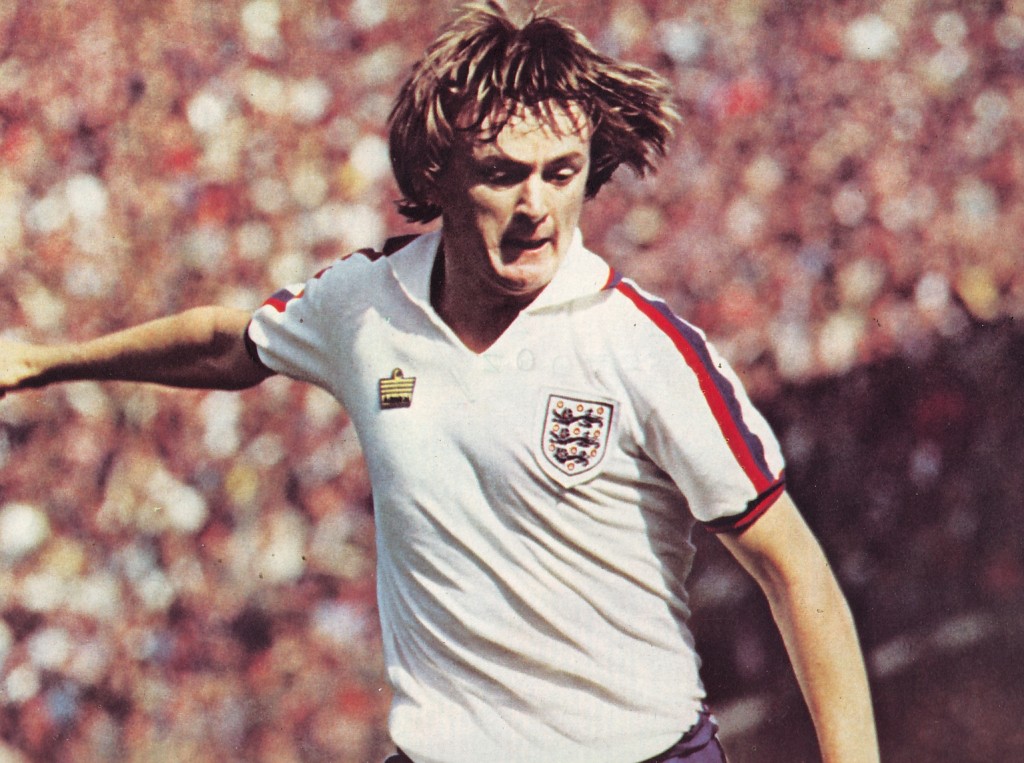
Thinking about managers, who was your favourite?
Joe Mercer didn’t directly manage me, however he was a major influence because while Joe was around everything was fine. He was a great calming figure and I have no doubt that he was the man – together with the guys I mentioned earlier – who ensured the environment was right when I first arrived at Maine Road.
Ron Greenwood was another Joe Mercer in many ways. Dignified… knowledgeable… a true football man. Tony Book was always honest and had a great mix of experience and youth playing for him.
When you signed for West Bromwich Albion in 1979 were you glad to leave City?
Not at all! I didn’t want to leave. I remember a few months earlier thinking how great the Club was. We’d beaten AC Milan and were doing well in Europe. We had a great side containing internationals: Corrigan, Watson, Channon, Kidd, Hartford, Donachie, Bell, Deyna and me, and then all of a sudden it changed. One day I walked into the main entrance at the ground and saw Ron Atkinson waiting. I couldn’t understand why he was there. ‘Surely, we’re not selling a player’ I thought. Then I heard Gary Owen was off to West Brom. I was shocked. Six weeks later I was on my way there as well. Regardless of how things went at West Brom, this was such a major disappointment. I couldn’t work out why I wasn’t wanted and why the others were transferred.
Was it because of Ron Atkinson that you later signed for United?
Definitely, although the attraction of coming back to Manchester was also a big draw. Also, it’s worth remembering that before I went to United I’d moved to Leeds, Real Betis and been sent to Coventry! It’s fair to say Ron resurrected my career at United. It was a great period and there was even talk of me getting back into the England side.
On a personal level, it was great to wear the number 11 shirt. George Best had always been my hero and so wearing his shirt meant something to me. As a kid I wanted to play like him – I was a true Blue in every sense but back then it was okay to idolise one of the opposition. My Grandad used to take me to Maine Road – my Dad was playing elsewhere by this stage – and was the one who introduced me to life as a Blue. Then when City were away I’d go to United with my brothers to see Best.
In January 1987 you came home to City. How did that feel?
You should never go back. I love City… always have. It was great playing for Jimmy Frizzell, but everything was so different from my first spell. When my career started we were packed with exciting players, aiming for the top, and winning trophies. Within a few months of arriving in 1987 we were relegated and millions of pounds in debt.
Mel Machin came in and during pre-season it soon became obvious he didn’t want to play with wingers. Me and Paul Simpson – a great prospect and a firm favourite – hardly had chance to prove ourselves. Sentiment had brought me back, but it couldn’t keep me in the side. Eventually I moved on to Brian Horton’s Hull City and then in 1990 I played for Rodney Marsh at Tampa Bay Rowdies.
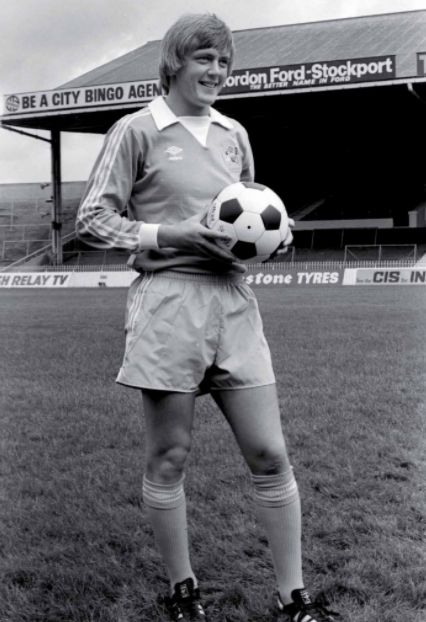
Finally, thinking about your own career and about the game today, what key differences do you see, and how would you change the game?
Today’s football can be fantastic at times, but football in the Seventies was so much more exciting. This is a point very close to my heart actually, and something I want all those in football to seriously consider. Back in the 70s any one of ten teams could win the Championship, nowadays it’s limited to two, possibly three. This is mainly because of money, and it is very sad for the game if it all comes down to finance.
I’d like to see emphasis placed on developing good quality British players and also on British coaches. If the investment is placed there, then our future as a strong footballing nation would be secure. If money’s regularly invested in bringing in expensive overseas stars, then we may end up in a similar situation to Scotland where two teams dominate and little international success comes our way. It’s not healthy for the nation.
Oh, and I also want to see every team bring back wingers!
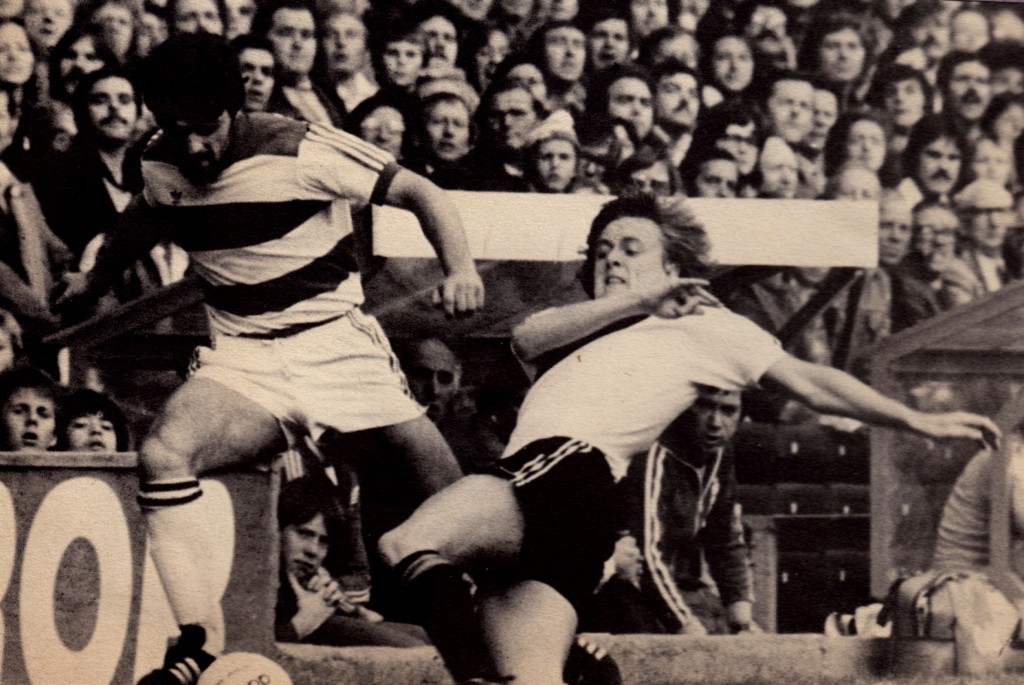
CELEBRATING HIS 21ST BIRTHDAY
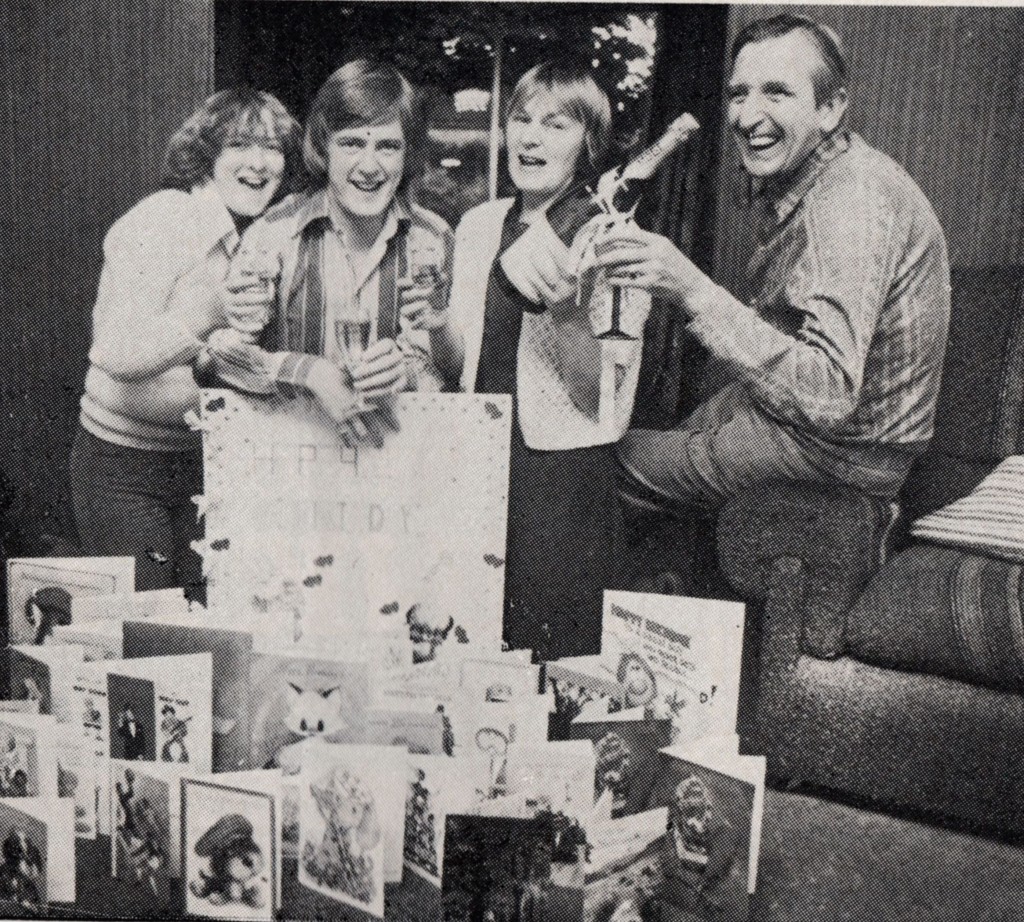
THE FAMOUS PETER BARNES FOOTBALL TRAINER
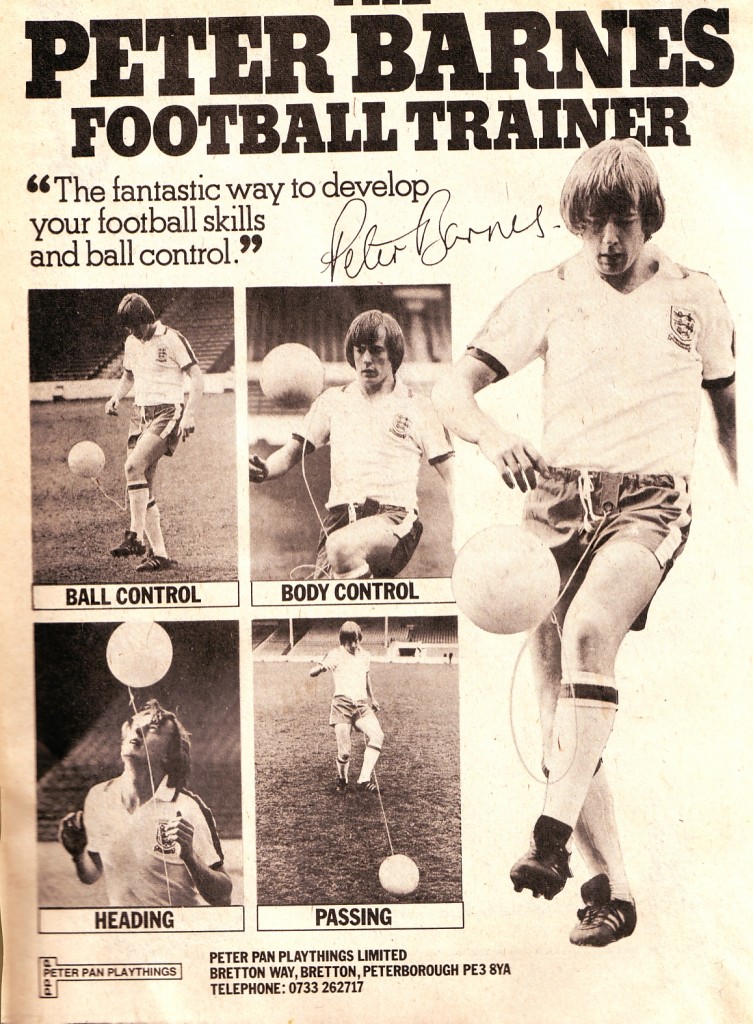
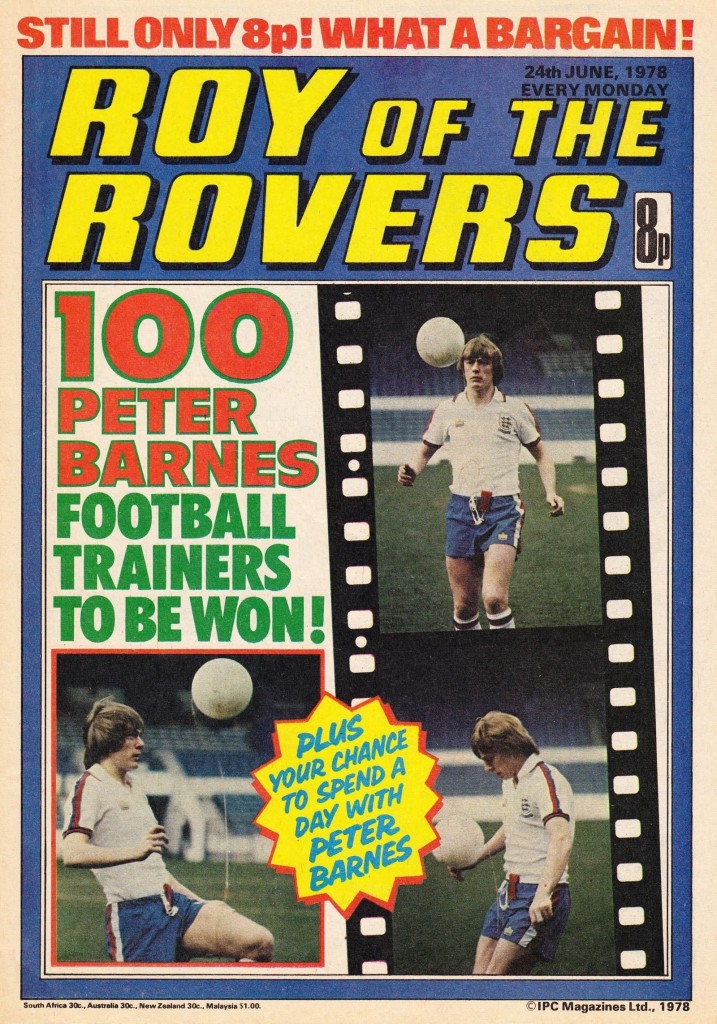
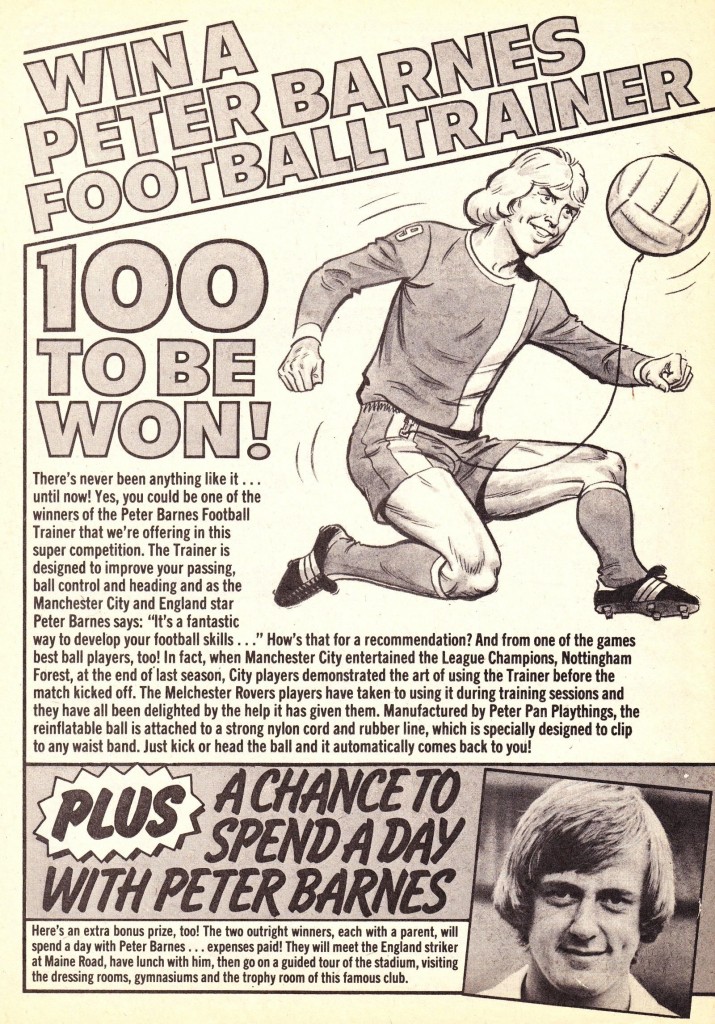
AN INTERVIEW WITH PETER PUBLISHED IN ROY OF THE ROVERS IN JUNE 1978
